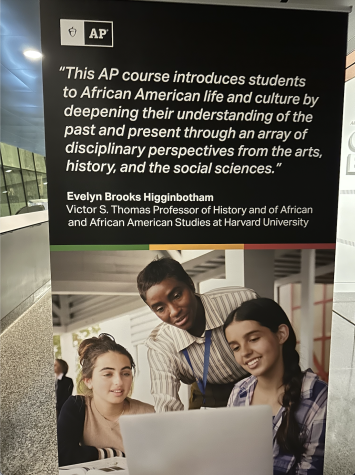Curriculum Controversy: The Shaky Introduction of AP African American Studies
February 28, 2023
Curriculum Controversy: The Shaky Introduction of AP African American Studies
As of 2023, the national College Board plans to release a number of new courses across the full scope of fields, but, as you may have heard in the media, none have drawn such rampant controversy as the piloted AP African American Studies.
The controversial course is currently being piloted, a trial introduction, in various states across the nation, including, Florida, Virginia, Texas, Pennsylvania, and Tennessee. As shared by college and AP resource, Best Colleges, the class is designed to dive into a deep exploration of African American culture, with emphasis on resistance movements and cultural highlights that shape modern society today. It is stated that this includes topics ranging from the reign of Queen Nzinga Mbande of northern Angola, to the Black Panthers, to scientists, like Valerie L. Thomas, and their revolutionary contributions.
The instruction of the course is intended, not only to give context to and educate on issues and movements relating to African American history, but to prepare students for this study at a college level. Best Colleges also shares that it additionally teaches students to relate to people of various backgrounds, and encourage cultural diversity.

Banner depicting the AP course in a Washington DC museum. Photo by Dr. Blazer – Own work, CC BY-SA 4.0, https://commons.wikimedia.org/w/index.php?curid=128380414
So, why would a class honoring culture and diversity be met with resistance and controversy? The answer, it turns out, is political. National newssource Vox relays that many of the original concepts and studies, provided in the pilot framework, were rejected by leaders like Florida Governor Ron DeSantis. Rejected topics include, the Black Lives Matter movement, intersectionality, black queer studies, and works of scholars such as Angela Davis and Robin D.G. Kelley. The reasoning behind this being the claim that such ideas are “divisive topics”, which do not align with conservative ideology. As Governor DeSantis passed a ban on the course throughout Florida, many conservative states in turn followed suit. The College Board has rejected the claims made by these officials, and continues to be in contact with the Florida government.
As it may seem, this is just one course, but it is actually a symbol of how education is turning into controversy, and is subjugated to an increasing amount of political influence and backlash. The rivaling spheres of education and politics are in greater contact than ever before, affecting the very way that kids are learning today. But what does this mean for the future? As with all things in life, only time will tell.






